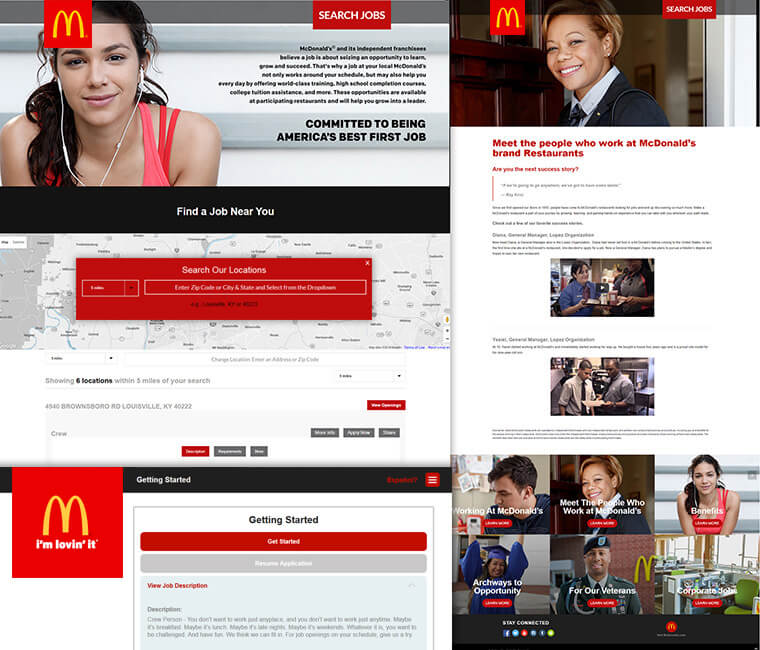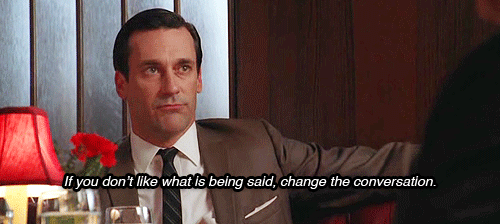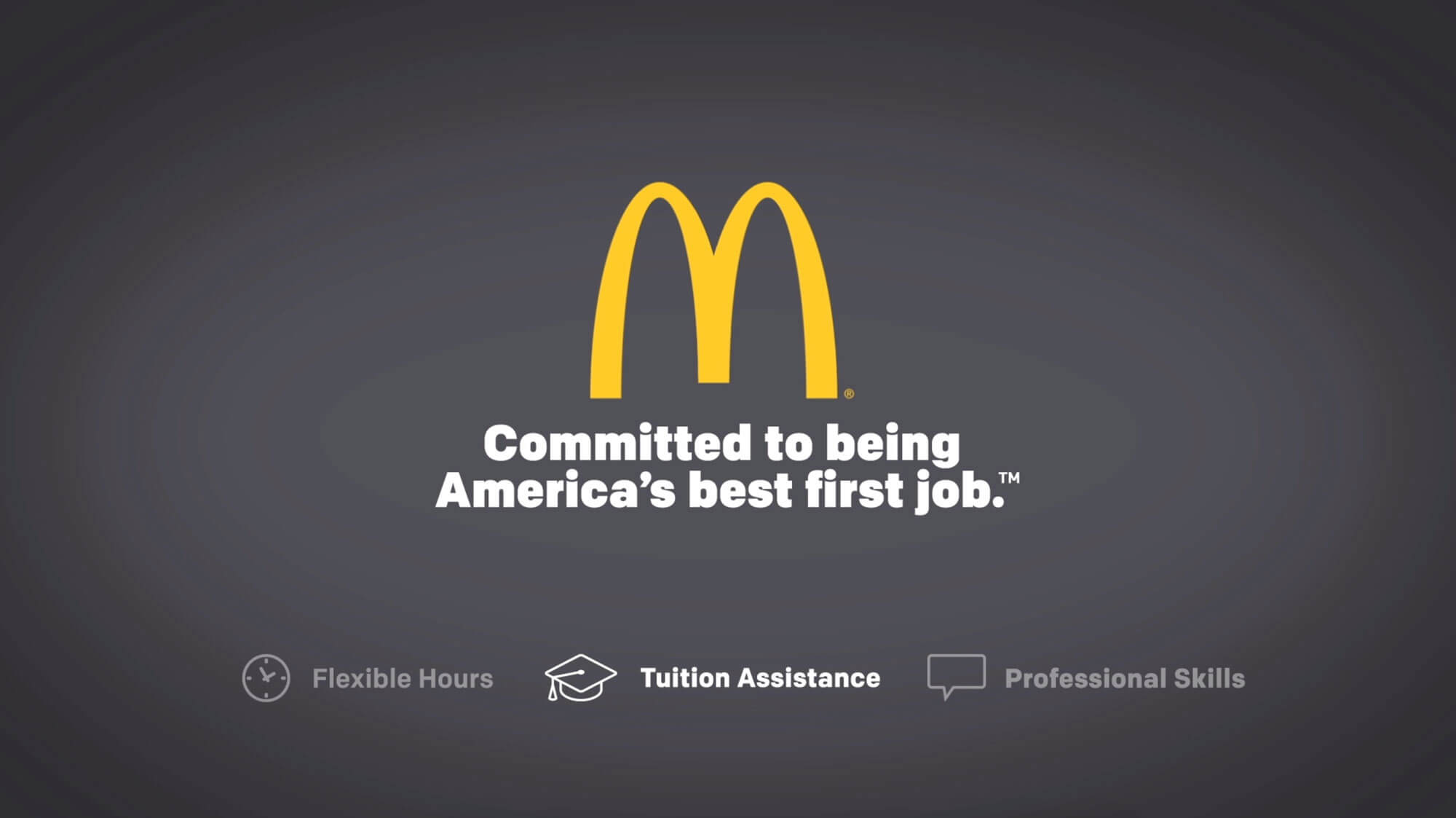The Value of Brand Self-Awareness
McDonald’s:
Committed To Being America’s Best First Job
This struck me as brilliant almost immediately and beckoned a blog post. So here we are. Now, before I briefly discuss what I loved so much about this line, I’d like to issue a disclaimer. I am in no way endorsing the hiring practices, compensation principles, or marketing objectives of McDonald’s. Without getting into personal politics, I strongly align myself with those fighting for minimum wage to be increased to meet inflation and those who understand how many single mothers specifically work minimum wage jobs, as opposed to the normal goofy teenager stereotype that comes to mind. I am also aware that this campaign was rolled out almost definitively to respond to the #FightFor15 protests. That is not what this post is about.
Whew. Okay. We got serious there for a moment, but let’s get back to the creative stuff.
So, what did I love this so much? Because it’s the simplest example I’ve seen recently, or maybe at all, of a brand leaning into who they truly are instead of trying to steer away from it. In other fast food drive-thrus (and I’ve seen many) the recruiting pitch usually involves publishing the average salaries of management positions & beyond, creating a sense of aspiration. Instead, McDonald’s is stating definitively that they know you won’t work there forever and would like to tell you that you should consider working there for a little while.
If you take their call-to-action and visit their recruiting site, you’ll see this message repeated ad infinitum. The message is built upon with well shot, obviously scripted videos of team members celebrating each other’s college acceptance letters, which McD’s parlays into some verbiage about their scholarship programs.

They know they aren’t anyone’s dream job, so guess what? They’re happy to just be someone’s launch pad. In fact, they’ll celebrate it. What they don’t mention are their specific compensation packages or benefits parameters, but that’s not their message.
They changed the conversation, but not the topic of the conversation.
This brings me to my next point, which will involve me committing a cardinal sin of the copywriting world. Attempting to reference Mad Men in a meaningful way. One of the most famous moments in the show, which comes in the first episode, involves Don trying to solve a problem for a cigarette client. The government has said that cigarette companies can no longer use medical or physician endorsements to combat emerging research about how smoking leads to lung cancer and other deadly consequences. Don responds by saying that they should just build a campaign about the fact that their tobacco is toasted. To borrow a Draper line from another episode, Don is saying that because the cigarette client doesn’t like what’s being said about them, they should just change the conversation.

That’s what McDonald’s is doing here. They don’t like what’s being said about their minimum wage jobs. So they changed a conversation. They are leaning into something else that’s true about working at McDonald’s and not even addressing the minimum wage topic at hand. This isn’t a novel concept, brands pivot to avoid controversy. What is novel, however, is that McDonald’s changed the conversation while staying on topic.
This point can be better illustrated by highlighting examples of changing the conversation without staying on topic, which can only heighten controversy. The founder & CEO of Papa John’s Pizza got caught using abhorrent, racist language. Major backlash ensued. The response? Papa John’s released a redesigned their logo, removing the apostrophe from their brand, figuratively distancing themselves for their founder. They also stated that they had no plans for rolling out the new mark company-wide. This made the public feel like Papa John’s thought they were stupid. Other examples that spring to mind are companies that get caught using radically-underpaid workers overseas, and in response build a school in an unrelated impoverished community. This is a distraction that, while positive, didn’t attempt to address what folks were upset about.
McDonald’s, however, stayed on topic. By just accepting the fact that they aren’t seen as a career destination (or even a desired job destination) and choosing to instead lean into being a launchpad for their employees’ dreams, they are addressing the concerns without addressing the controversy. And because it reads as them being self-aware about who they are, viewers are more likely to believe that they offer great scholarship opportunities and celebrate as a team when one of their own succeeds. At least, they’re more likely to believe that than they are to believe Papa John’s is a company devoid of racism because the dropped an apostrophe.
So, the message here is this:
For brands to succeed, especially in the face of controversy, confusion, or adversity, they HAVE to be self-aware. More than that, they have to use that self-awareness to change the conversation. Even more than that, they have to change the conversation to something that’s still on topic in order to address concerns about the brand without having to address any backlash head-on.
As a proof of concept, this blog post probably did a good job of distracting you (and my conscience) from the fact that I believe strongly in raising the minimum wage but partake in McDonald’s often enough to think about their recruiting message in the drive-thru. Now that you’re aware of that again, maybe my next move will be changing the spelling of my name so you really know that I’m a changed man, just like that pizza brand we talked about earlier. But I’ll definitely not be changing it to “John”.
